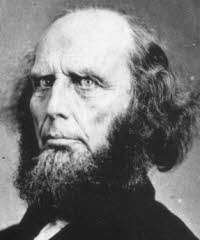Stories For Christians 3: Stealing Past Churchian Dragons
 This is the column, nearly ending this series, in which I get a little nervous. Ask me in about ten years, after I hope I’ve had more personal experience with Christian fiction readers (and not writers), whether I still agree with its contents. Very likely there’s much I would change.
This is the column, nearly ending this series, in which I get a little nervous. Ask me in about ten years, after I hope I’ve had more personal experience with Christian fiction readers (and not writers), whether I still agree with its contents. Very likely there’s much I would change.
Yet even now, I dare to suggest that I already have sufficient background, experience, and reasons to explain why Churchian Dragons — Biblical Christians, who try to practice real discernment in many areas but are naturally suspicious of stories — dislike fiction, especially visionary fiction, that doesn’t meet an often-arbitrary set of standards for Is It Useful.
My recent involvement in a discussion with a Christian, who clearly follows this subconscious ethic, helped reveal this even more. What was his expectation of Story? What did this kind of Christian expect Story to do? Did he want to see truth play out in a story-world “simulation”? Or receive incentive to worship, the same as any music or hymn presented with excellence, inside or outside a church? Or be driven to exalt the Creator and remember His wonders?
Nah. I’m afraid his, and many Christians’, default question of a story is something like this:
“Is it fit to convert sinners with?”
God’s glory, delighting in Him — they may see our need for that, and apply it in many other areas, even music, building aesthetics, and excellence in vocation. But for Story, all that is thrown out, and replaced by pragmatism. Is it useful? Does it help with my existing goals?
“Is it fit to convert sinners with?” by the way, is the question American revivalist Charles Finney asked of any teaching. Finney was likely the leading force behind pushing this kind of pragmatism, defined this way, into American evangelicalism. But even apart from Finney’s wrongful understanding of “conversion” (another topic for another article), such a question mistakes an end — converting sinners — for the means. Yes, sinners should repent and be saved by Christ. Yes, that is a mission of the Church. But this is not anyone’s “chief end.”
Man’s chief end is to glorify God and enjoy Him forever.
Or, to quote John Piper, who loves that Catechism line, tweaks it, and expands on it:
God is most glorified in us when we are most satisfied in Him.
Stories for glory

God working all for His own glory ("Christian Hedonism") — a nonfiction truth essential to enjoying great fiction.
Christians need to redefine their Story pragmatism. Not “will it work to convert sinners?” Not even less-Biblical hopes such as “will it work to change my kids’ behavior?” or “will it work to give me safe, family-friendly entertainment?” But instead: will this glorify God?
If glorifying and enjoying God forever is the chief end of man, that should be the same goal we understand and explore for everything. Thus:
- The chief end of Creation is to glorify God and help us enjoy Him forever.
- The chief end of Story is to glorify God and help us enjoy Him forever.
Many members of the Churchian Dragon company already understand this. They boo and hiss at Finney-esque pragmatism, rant (sometimes unfairly) at modern megachurch leaders whose methods even seem to resemble Finney’s, and even more actively strive to bring their views on other Things into alignment with the glorify-God-and-enjoy-Him-forever goals.
But they haven’t done this yet with Story itself.
Thus, a chief means for Christian visionary authors, who believe they’re called to write for Christians, should be to show through Story and Tell in nonfiction why they need to.
We can’t just show the Dragons, as proof of our good intentions, our story “treasures” as barter for passage. At worst, the Dragons have been trained to despise such treasure. And at best, they believe it’s only good to exchange for something else.
Thus, we must persuade them that Story is indeed treasure, its worth inestimable, to accept with thrilled gratitude and (to shatter the metaphor) to love not for its own sake, but because its beauty draws us to enjoy God Himself , the first and best of Beings.
Wait, why not just show the Dragons?
Among writers, more people bring up this objection. Just let Story do its job. Tell the Story and get out of the way. That’s what Lewis did. Let it speak for itself. Don’t spoil the joke.
And I can understand that. In fact, two weeks ago that was what I had to remember, while I was fighting to articulate the true “machinery” of Story, as opposed to many Christians’ wrong views of it. In frustration, I had to take a break, and go do some dishes — and, it so happens, listen to my wife’s Rich Mullins playlist. Then suddenly, without being told but instead shown, the themes I was tackling seemed to make more sense. In Lewis’s terms, I had stopped looking at the beam of light, Contemplating, and had looked along it: Enjoying.
This is also why, at a Christian writers’ conference, I can only go to so many workshops on the craft or business of writing without feeling overwhelmed, not to the point of exhaustion, but to the point of getting tired of only talking and talking about writing — I want to do it!
Still, here are a few thoughts versus the “just let Story itself do its job for Christians” notion:
- It only works on those who knows the “code.” And remember our Dragons’ nature. They’re not Christians who know what Story is, or who are artsy and know that not everything has to be stamped with John 3:16 to glorify God or advance the Gospel.
- The human mind has a remarkable capacity to hold two completely contrary notions at the same time. Christians may agree that yes, glorifying God matters, and then in reaction to fiction switch to opposite ideas — no matter how much they are Shown a story. But if they’ve been trained better to listen to Telling, that may help them more.
- Not even C.S. Lewis has gotten through to these sorts of wrongly pragmatic, well-meaning readers. They must be told, in nonfiction, to “breathe Narnian air” before they start digging ion the Chronicles of Narnia for their own practical notions.
- Lewis himself didn’t follow a Show and never Tell axiom. Yes, for many he let his stories stand on their own. But he also wrote nonfiction. And quotes are legion from the letters he would write back to children who asked, confirming that yes, Aslan is a “supposal” (but not an allegory) in that world of Jesus Christ in our world.
Moreover, for most of us, I would guess we did not come to our conclusions about how God can glorify Himself and work in our hearts through Story simply by experiencing stories.
One must do just a little bit of Telling to see better what it’s like to be Shown. Even “show, not tell” is itself a Telling statement. In some way, we all need to be given an interpretive key, based in Telling, before exploring the concept of Showing that leads us to enjoy Story.
And if this is true for those of us who fancy ourselves experienced fiction readers, how much more would this apply to our Christian brothers and sisters who mainly operate according to nonfiction. They need to be shown and told why they need, and not just “could use,” God-honoring stories — and particularly visionary tales that motivate us, not just to Have More Family Values or to Be Safe from Offensive Content, but to worship and enjoy God Himself.
That’s the first of these reasons we can imbue in certain visionary novels for Christians, and teaching more overtly in our nonfiction:
A Story’s real “usefulness” must be defined not by whether it makes us or the kids Behave Better, but whether it helps us enjoy and glorify our Creator.
So far, that seems the best way to “steal past” a Churchian Dragon: by seeing that he has been brainwashed. Some knights have advanced in “peace” and then began shooting their arrows. Dragons also want treasure to fill their caves, but keep getting wood chips thrown at him along with the bold claim “this is treasure, really!” Or, even more likely, Dragons keep forgetting, like all of us may, what true treasure is — God Himself.
Next week: the series conclusion, how we can offer real Treasures for Churchian Dragons. First, I’d love to hear your own thoughts on Dragons, treasure, and redefining pragmatism.











































Interesting perspective.
Well, now I’m interested in some examples. I look forward to your next column.
I just finished reading White Cat, by Holly Black. I do believe it’s the first book I’ve ever read where the hero is worse off by the end than he started at the beginning. And at the beginning, he’s a guy in high school burdened by the memory of murdering his best friend when he was 14. The premise of the story is that there are people who can work all kinds of curses, from putting luck on people, to changing memories, to killing people. This kid’s whole family can do things, and they’re all in the mafia.
The whole book, as the kid finds his own power and realizes he didn’t kill the girl after all, the cry of his heart is for forgiveness and a way out. That’s all he wants. So he connives and cons people and plots and schemes. And at the end, he’s left at a worse point than when he started. There’s no hope. No forgiveness. No Jesus.
I kept hoping for some redemption for the poor character as I read, and I almost feel like I messed him up worse by reading his book, because I left him there at the end.
I doubt having a some redemption for the character would help the book make it past any Churchian Dragons, but it might make the book a little more uplifting.
Kessie, even though I’m not a Churchian Dragon — or at least, I certainly try not to be! — this is the kind of story that I think many Dragons have been unfairly maligned for disliking. What’s the point of what? the Dragon may ask. I believe in Christ’s redemption and “happy endings.” This, to some others, seems unrealistic and a rose-tinted-glasses view of the world. But for the Christian it is in fact a completely realistic expectation.
To this day I recall needing to read extremely depressing short stories in literature classes in college. And no matter how much I learn about Art and all that, or study the genre of Story (and its subgenres), I still don’t see the point of all those kinds of stories.
My worldview includes “happy endings,” after great terror and suffering, of course, but wonders to come nonetheless. This is realistic. And when someone comes along and says, no, “this is what life is really like” — as C.S. Lewis’s Screwtape encouraged Wormwood to remind his human patient only when the latter saw horrible things, and not wonderful things — that doesn’t help me with my true practical and realistic goals.
It certainly doesn’t help a Churchian Dragon, either. Therefore I suggest making sure we authors are not demanding such Dragons accept definitions of “realism” that aren’t right. In fact, we can show what they do have right, and question — based on Scripture and not opinion — the times that Dragons do expect, say, happy endings without suffering.
I chewed through your column again (after being awake for longer than an hour), and I’m still a little puzzled.
I’m confused. Are you saying that first we write nonfiction telling people, “Read more books! Like, say THIS ONE!” and then publish a companion fiction book?
That would be kind of funny, actually. Kind of like the story about E.B. White doing Elements of Style and writing Charlotte’s Web, Trumpet of the Swan, and Stuart Little to illustrate what the Elements looked like when used properly. (Not sure if that’s true, I just heard it somewhere years ago.)
Also, how are we to write something that makes people enjoy and worship God himself? Does every story have to contain a benevolent creator being-stand-in? I’ve tried writing God in multiple ways, and He’s EXTREMELY hard to portray properly. Especially trying to pack him down into a mortal form.
I’d rather just write something a little more stealthy, like Grisham’s Testament, where the main character actually gets saved and it helps him stop drinking. Or The Guardians of Ga’Hoole, that kids’ book and movie with the owls in armor. They actually quote Bible verses in the books.
Maybe. I do think we need more nonfiction material showing us why we need, not just “could use,” excellent fiction that honors God (either explicitly or implicitly). But that would be an overt solution, perhaps in the overall context of showing with great fiction, and telling with nonfiction explanation, that Christians should be reading great stories.
Already many blogs, including Speculative Faith, exist to provide “nonfiction” outlets, and even some apologetics, for Story altogether — especially visionary genres.
By recognizing the Biblical truth that even fallen creation gives unbelieving men no excuse not to recognize God exists and is good (Romans 1). While God’s Word is the only sure revelation, people aren’t condemned only for rejecting that. We’re condemned for rejecting God’s implicit evidence in His creation (even when it’s fallen).
Elsewhere in Scripture — especially the Psalms — fallen creation is said to give God honor even without words or the inclusion of specific credits to God. If even rocks and trees can “praise” God without words, surely a story without a “God-figure” can!
This isn’t to say that all stories should be this way; like Scripture itself shows, I think we do need stories that overtly include/credit Christ. But there’s no neat division between “stories that name Jesus and glorify Him” and “stories that ignore Him and are neutral or hostile.” Too often Christians think that (I lapse into it too!).
Yet I think we all know of some stories (or songs, books, etc.) that don’t name Jesus, but implicitly repeat His Gospel, remind us to worship, or speak truth about His world, more than a more-overt Thing that names Jesus (or Christianity) but fails in all three ways to honor Him to us.
Similarly, music can honor Him as much as a song with clearly Christian lyrics.
And a painting of a sunset can honor Him as much as a painting of the Crucifixion (and, I would argue, much more than this!).
When not even the clear literature in Scripture itself follows this rule, it would be ridiculous to insist on that for our stories!